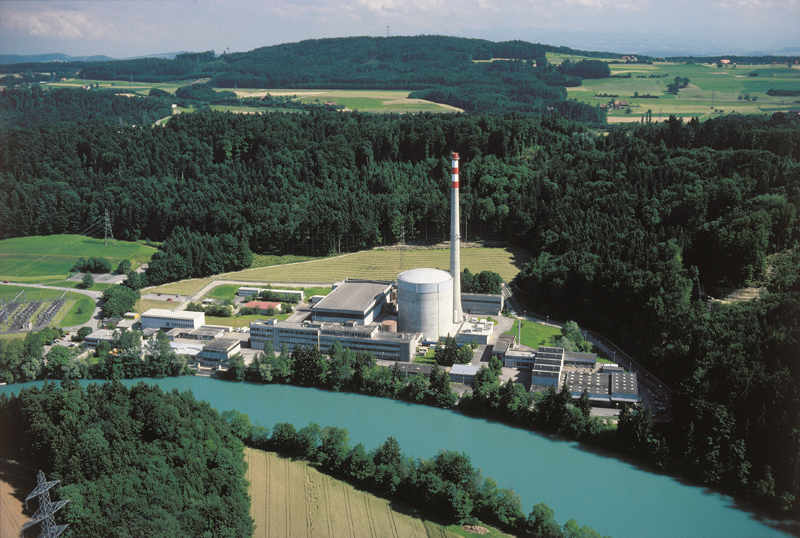Nuclear Power Plant Ordinance: Consultation opened
The Federal Council recently opened the consultation on the partial revision of the Nuclear Energy Ordinance and other ordinances (radiation protection, etc.). The consultation will last until April 17, 2018.

Operators of nuclear power plants must prove that their plants are safe even in the event of incidents. With this so-called accident analysis, they prove to the Swiss Federal Nuclear Safety Inspectorate (Ensi) that their plant is adequately protected against various assumed accidents and that a major release of radioactive substances is therefore not to be expected in the event of an incident.
The revision of the Nuclear Energy Ordinance is intended to unambiguously regulate a previously unclearly formulated provision. The previous practice of the Ensi with regard to accident analyses of nuclear power plants corresponds to the new regulation. This is also in line with international requirements.
To this end, a distinction between natural and other, technically induced accidents is to be incorporated into the ordinance text. While technically induced accidents (e.g. system failures) have a single, defined probability of occurrence, the frequency of natural events (e.g. earthquakes and floods) depends on the severity of the event. For this reason, the incident categories of the Radiation Protection Ordinance should continue to apply to technical incidents. For natural events, the events are to be considered with a frequency of once per 1,000 years and once per 10,000 years. A dose of 1 or 100 mSv (millisievert) is to be demonstrated for the natural events.
In addition, it is now stipulated that a nuclear power plant must be temporarily taken out of operation without delay and retrofitted accordingly, irrespective of the accident category, if a dose of 100 mSv cannot be complied with in the event of design-basis accidents (accidents that must be controlled by the safety systems of the nuclear power plant). If the dose limits of 0.3 mSv or 1 mSv of the lower accident categories are not met, the plant does not have to be shut down immediately but must be retrofitted. These doses are below the annual natural radiation in Switzerland.
Decay storage of radioactive waste from nuclear facilities
The existing Swiss nuclear power plants will be decommissioned sooner or later. This will generate large quantities of radioactive waste. This includes very low-level radioactive waste that should not be placed in a deep geological repository, since it will have decayed to the point where it can be measured free after 30 years at the latest. For humans and the environment, this very low-level radioactive waste represents a low hazard potential if handled appropriately. Although the current legal basis provides for decay storage in principle, the existing provisions for carrying out decay storage of radioactive waste outside nuclear facilities are inadequate. In particular, it is unclear which permits are required from which authorities. The present revision of the Nuclear Energy Ordinance, the Radiation Protection Ordinance and the Nuclear Energy Liability Ordinance is intended to provide the relevant clarifications.
New regulations are to be introduced to allow a decay storage facility for radioactive waste from nuclear facilities to be built and operated outside a nuclear facility. However, this will only be possible if the siting canton has issued a cantonal building permit for this purpose and if a license has also been obtained in accordance with the Radiation Protection Act. The Ensi is to become the licensing and supervisory authority for decay storage. Furthermore, it should be clarified that radioactive waste of low activity that may be released into the environment in accordance with the provisions of the Radiation Protection Ordinance, as well as radioactive waste that is transferred to a decay storage facility, are exempt from the disposal obligation under the Nuclear Energy Act and therefore do not have to be disposed of in a deep geological repository. In addition, since decay storage facilities for radioactive waste from nuclear facilities have only a low hazard potential, the scope of coverage that the unlimitedly liable owner must provide through insurance or other financial security is to be reduced to 70 million euros per nuclear facility. The decay storage of radioactive waste not originating from nuclear facilities is not affected by this revision.
The new provisions are scheduled to take effect on January 1, 2019.
Source: Federal Council (Consultation documents here)









